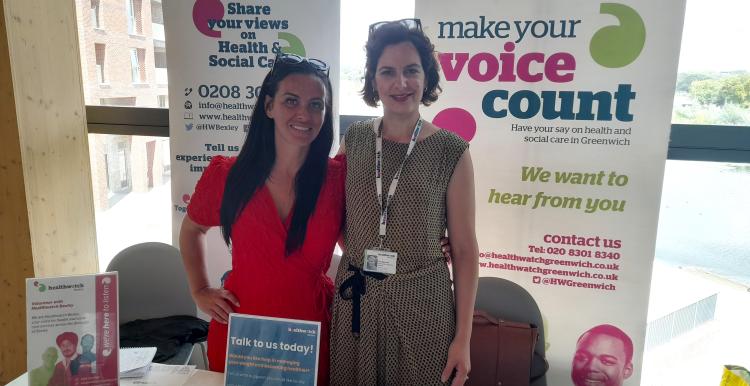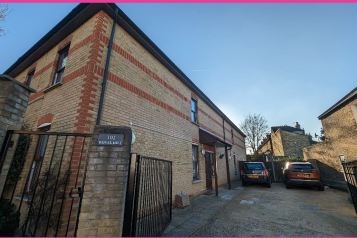How Healthwatch helps the NHS engage with communities

The year 2023 was, as ever, a year of worrying headlines in healthcare: record waiting times for hospital care, the lowest public satisfaction with the NHS on record, and the biggest strike in NHS history. But amid the bleak national picture, here at Healthwatch, we continue to hear stories of positive local action in response to people’s experience of care.
These stories highlight healthcare leaders and providers working in partnership with local Healthwatch to improve healthcare for the general public and the most vulnerable communities – positive initiatives that drive change on the ground and act as an example of what good should look like.
Over the last year, many of the 150 local Healthwatch either ran or took part in projects to improve access to or experiences of GP services. This is important, as access to GP services is the top issue people share with us nationwide. We often hear of long waits in phone queues to book appointments, struggles navigating online GP access tools or getting the type of appointment that meets people’s needs, or websites featuring outdated information. But we also know that if you are a woman or a person with a disability or are from a minority ethnic community, you are more likely to have a worse experience of GP services, with examples including registration issues or having your needs ignored.
The role of clear and proactive communication can’t be overlooked. Patients and the wider public should know how service changes will benefit or impact them.
The Department of Health and Social Care and NHS England have responded to some of those challenges by publishing the Delivery Plan for recovering access to primary care earlier this year. While we have yet to see the impact of those changes in the public’s feedback, we have seen many tangible improvements in response to people’s struggles to get the care they need from their local GP services.
Some of those included:
- In Waltham Forest, healthcare leaders responsible for primary care services responded to reports from local Healthwatch, which showed that people struggled to get through to their local surgery and book online appointments as booking systems often didn’t work smoothly. As a result, GP practices implemented new digital phone systems to improve response times and improved information for patients on what services are available to them and how to access them without having to go through GPs. In addition, GP hubs will be available to offer more same-day appointments for people.
- Some local commissioners and services took action to help the communities whose voices are rarely heard. For instance, the integrated care board in Doncaster responded to evidence from local Healthwatch showing the discrimination the traveller community faced when registering with a GP practice. As a result, local GP practices delivered culture competency training for staff, which led to access and registration no longer being a barrier to healthcare. In Kent, following Healthwatch Kent recommendations, local GP practices extended eConsult hours to ensure fishermen who struggle to access healthcare due to spending long and unsociable hours at sea can get medical checks when needed.
- In Warrington, working with local Healthwatch, primary care networks acted on feedback from women from various backgrounds around the lack of menopausal support and choice of treatment. As a result, they rolled out training on menopause awareness across all GP practices.
The positive examples suggest clear lessons for local healthcare leaders and providers. While national policies and funding have a vital role to play, working in partnership and listening to and acting on the concerns of patients or groups working with the most vulnerable communities should become integral to improving healthcare.
The role of clear and proactive communication can’t be overlooked. Patients and the wider public should know how service changes will benefit or impact them. Proactive communication will also help address the lack of confidence many people have in accessing care and ensure they seek medical attention when needed. As our research shows, if people are not confident in calling a GP practice or requesting a referral, they put their health at risk. Delaying medical attention also adds further strain on NHS services.
With another year upon us, let’s make sure our communities know about the improvements made to their local health services and that the NHS is there for them.
Originally published on : How Healthwatch helps the NHS engage with communities | Comment | Health Service Journal (hsj.co.uk)

